
CLASSICAL DERMATOLOGY
In our private dermatology practice, we offer comprehensive allergological diagnostics and treatment options. Below, you will find out what this looks like and how we can support you with our expertise.
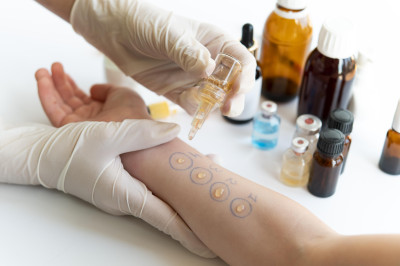
An allergy is an overreaction of the immune system to substances that are actually harmless, so-called allergens. These substances can come from the environment, such as pollen or animal hair, or be contained in food, medicine or care products. The immune system mistakenly recognizes the allergen as a threat and sets off a cascade of defense reactions that can lead to typical allergy symptoms. These range from mild skin reactions and respiratory problems to severe allergic reactions such as anaphylactic shock.
Allergies can manifest themselves in different forms and affect different areas of the body. The most common types of allergies are:

POLLEN ALLERGY
Reactions to pollen from trees, grasses and herbs, which typically occur seasonally.

FOOD ALLERGY
Reactions to certain foods such as peanuts, dairy products or seafood.
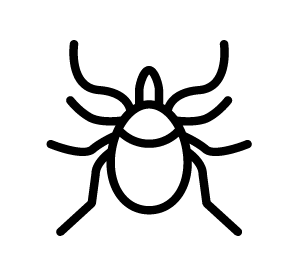
INSECT VENOM ALLERGY Allergic reactions to stings from bees, wasps or other insects.

CONTACT ALLERGY
Reactions of the skin to certain substances such as nickel, latex or fragrances that occur in direct contact with the skin.

ANIMAL HAIR ALLERGY Reactions to proteins in the saliva or skin flakes of animals such as cats or dogs.

HOUSE DUST MITE ALLERGY
Reactions to mite excrement, which accumulates mainly in bed linen and upholstered furniture.
In order to determine the cause of the allergy, various diagnostic procedures are available in our private dermatologist:
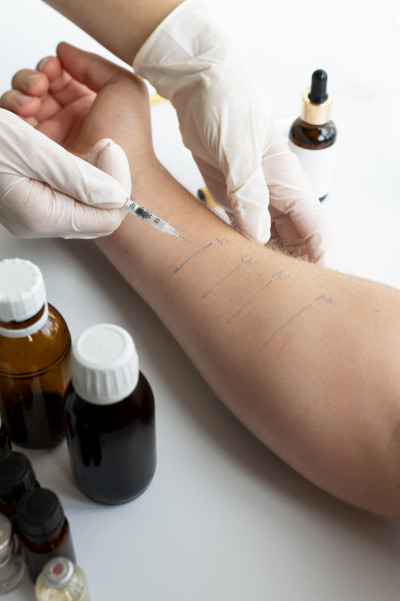
Small amounts of potential allergens are applied to the skin and the skin is gently scratched. If the skin shows a reaction such as redness or swelling, this may indicate an allergy.
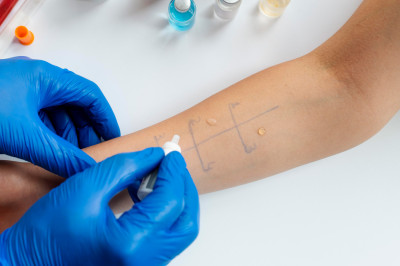
This test is carried out on the back and is used to diagnose contact allergies. Special patches containing various allergens are stuck to the skin. After 48 hours, it is checked whether a reaction has developed.
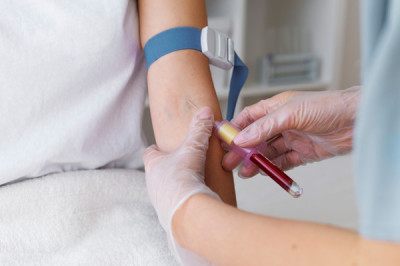
Specific antibodies against certain allergens can be detected in the blood. This test is often used as a supplement, especially in patients who react strongly to skin tests or for whom skin tests are difficult to perform.
Treatment for allergies depends on the type and severity of the allergy and may include the following approaches:
Where possible, attempts are made to avoid contact with the triggering allergen. This can be done through special measures in the home, in diet or in everyday life.
Antihistamines, cortisone preparations or other medications can be used to relieve symptoms.
In the case of certain allergies, such as pollen or insect venom allergies, hyposensitization can be carried out.
In our practice, we offer desensitization (also called hyposensitization) as a targeted therapy. This method helps to gradually accustom the immune system to the triggering allergen and to alleviate the allergic reaction in the long term.
The treatment is carried out over a longer period of time at regular intervals and in increasing doses and can be effective for pollen and dust mite allergies as well as insect venom allergies. Our experienced team will accompany you personally and ensure that the therapy is individually tailored to your needs.
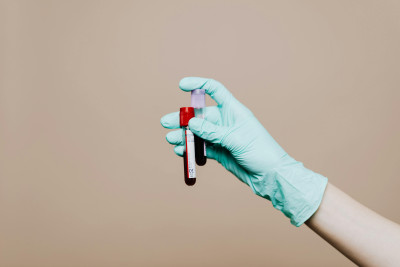
We will be happy to explain the possible treatment options to you in a personal consultation and take enough time to confidentially address your questions and concerns.